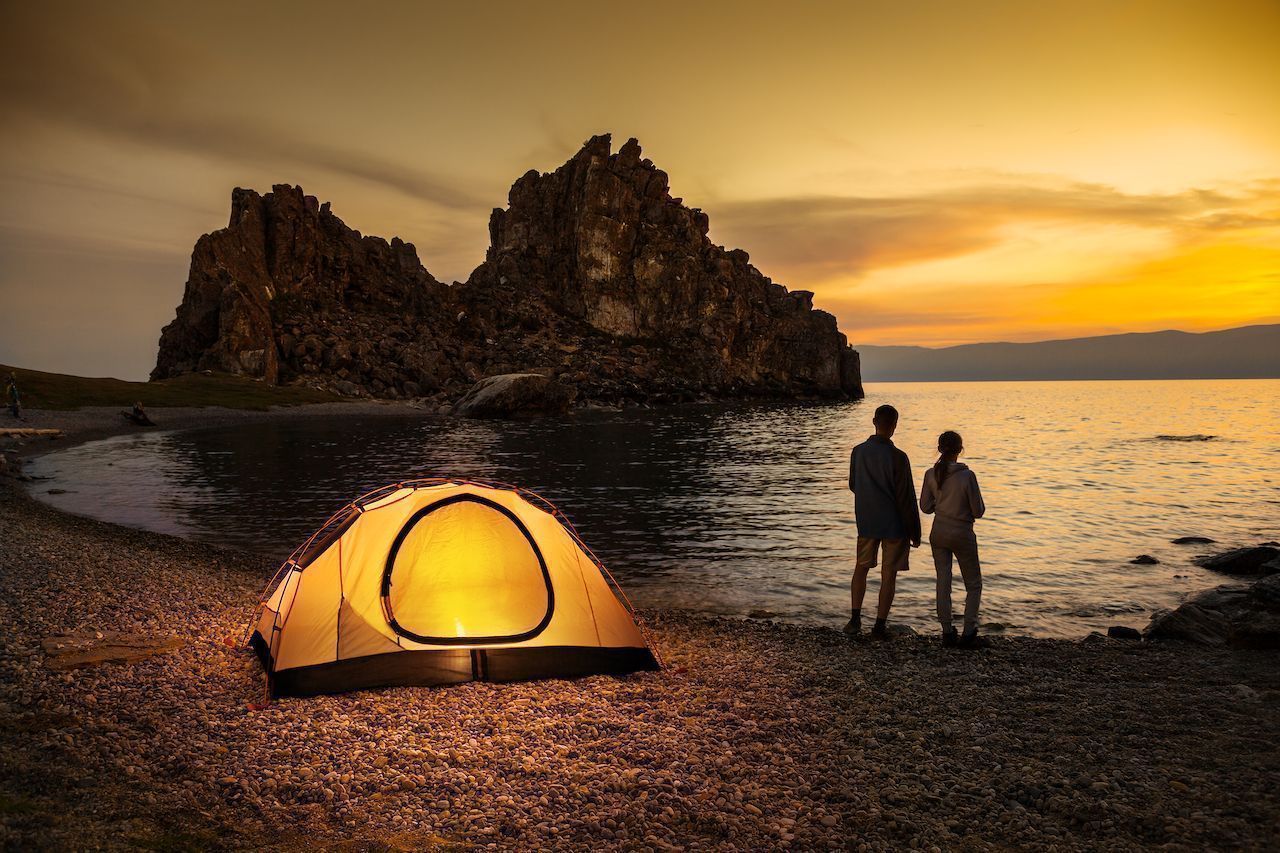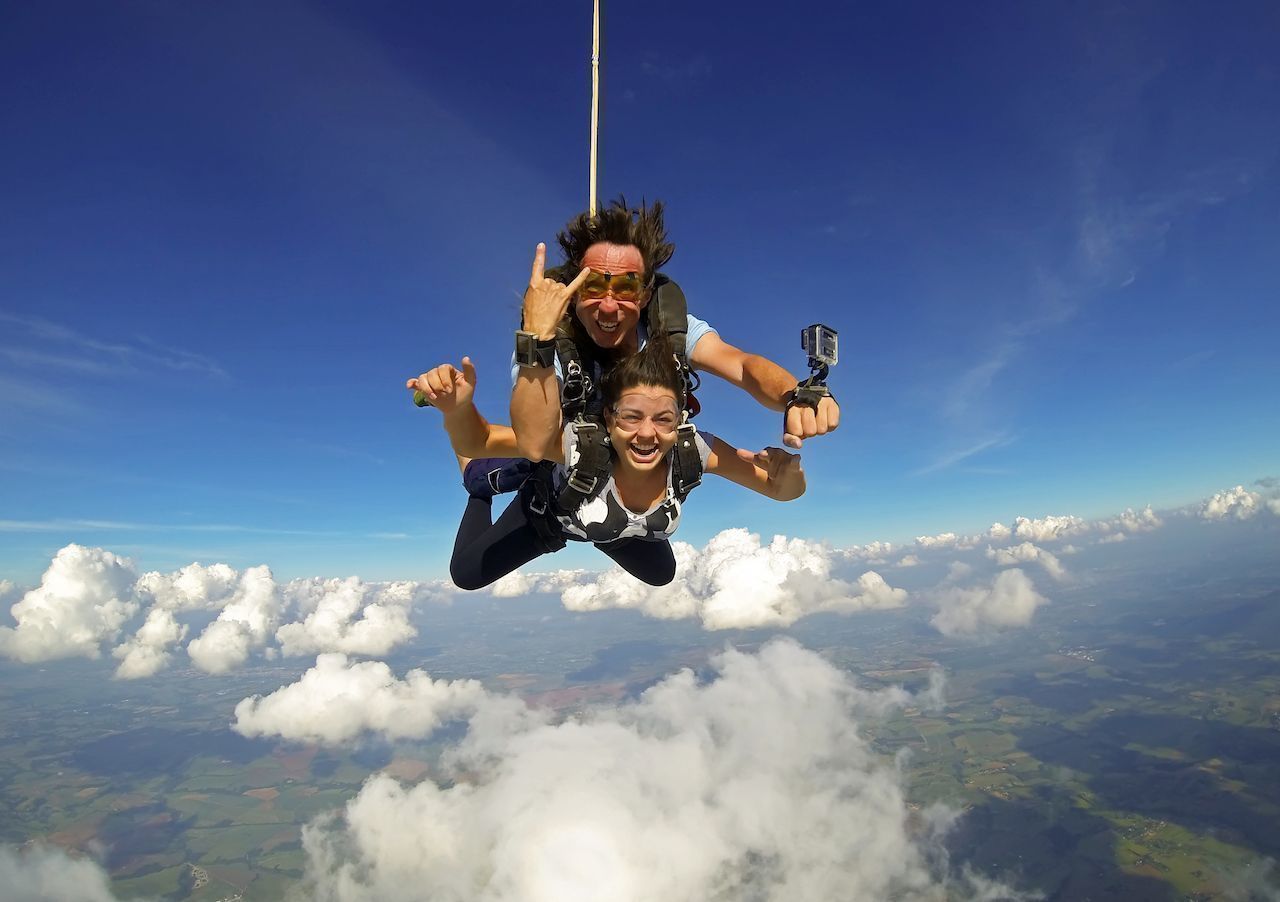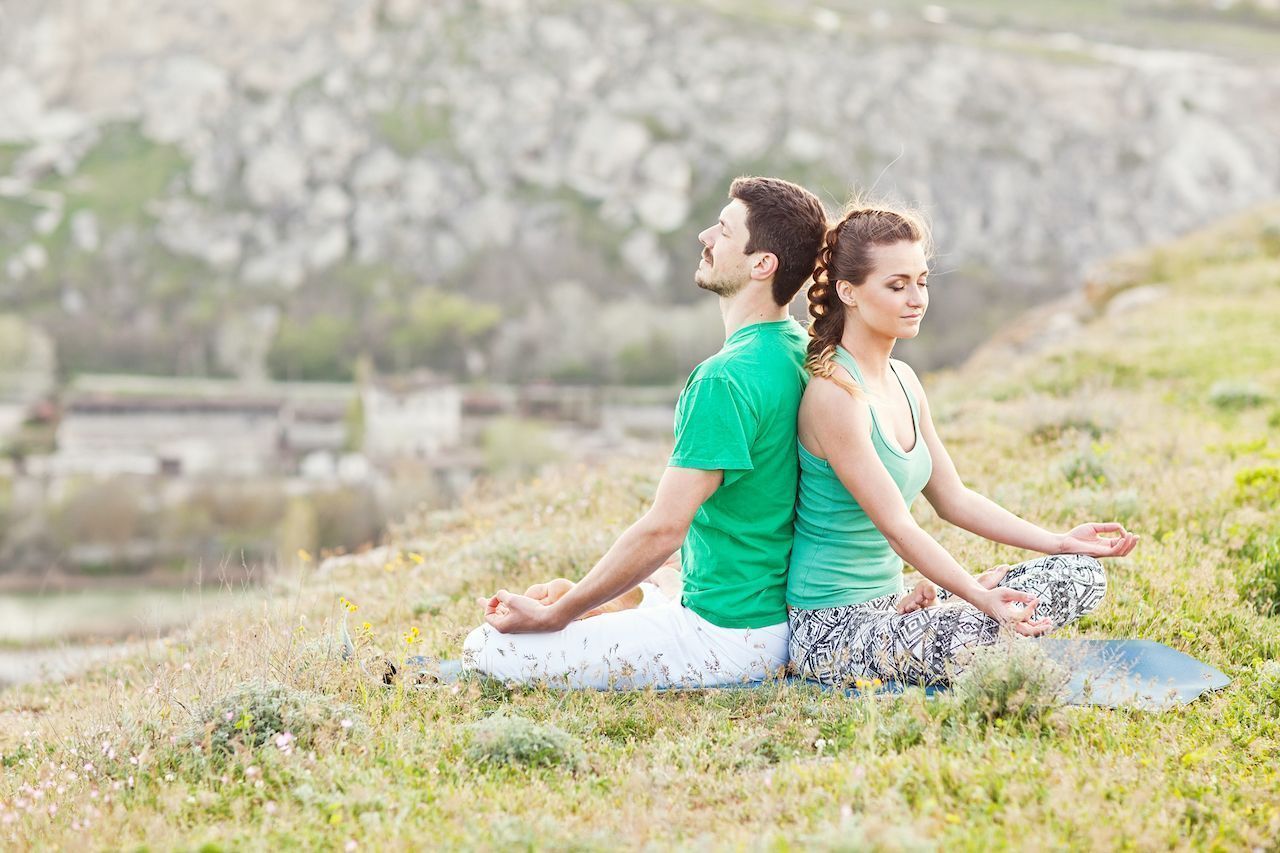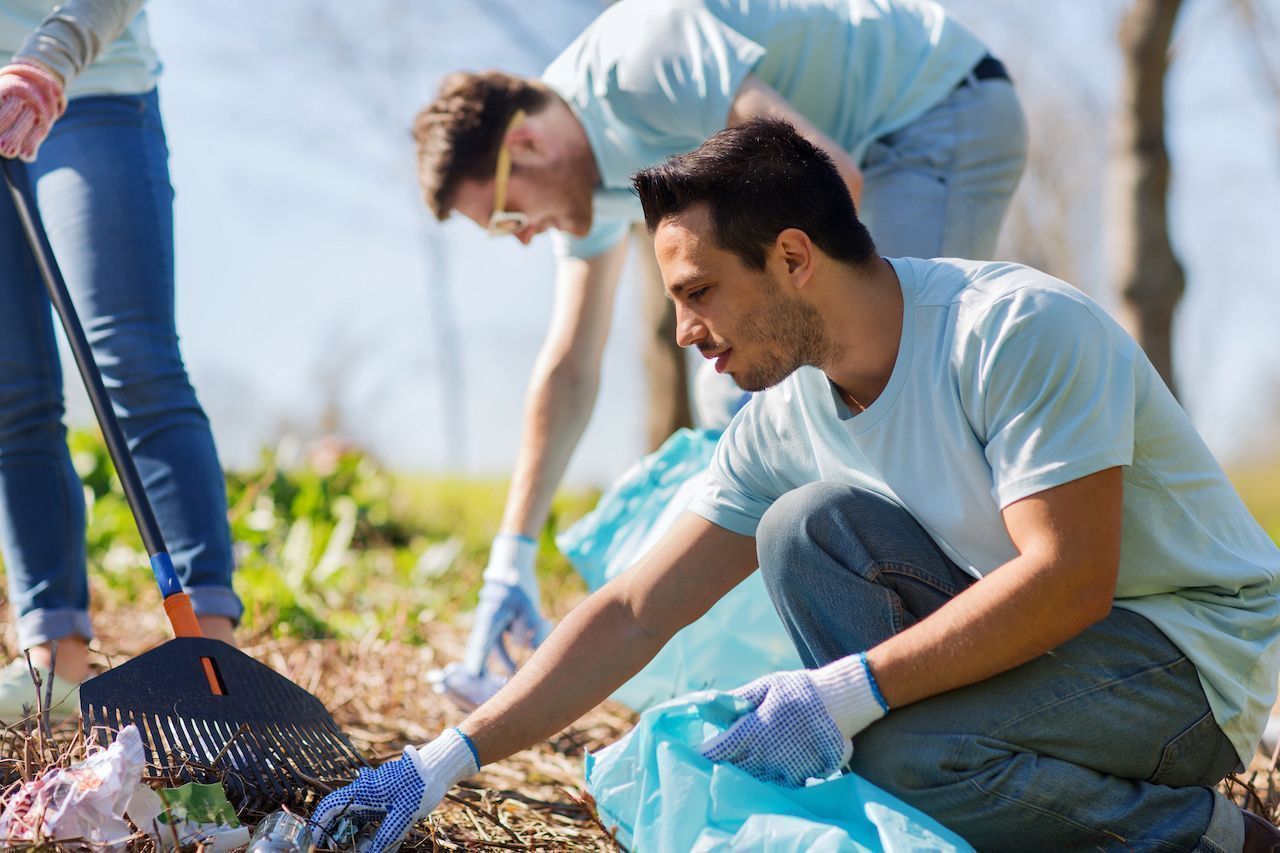No offense to the romance resorts and packaged passion vacations, but relational researchers actually have the blueprint for building healthier couples. After four decades of research with over 3,000 couples, Dr. John Gottman married emotional concepts with hard data, predicting success for all couples with over 90 percent accuracy. So when he and his wife Julie published the essential date conversations that matter most, my marriage and family therapy field sat up and listened. But I say, why make it just a normal date when you can pack your bags and travel? If you are looking to strengthen your relationship, here are seven unique adventures that might just do the trick.


1. Trust me: The commitment adventure

Photo: everst/Shutterstock
Goal: Practice vulnerability. How do you show each other that you have jumped in with both feet? How do you show your partner what you adore and respect?
Our first life task is to learn who to trust. All of our relationships from birth add to this equation, making it either easier or harder to trust others. Of course, trust and commitment go hand in hand, and both are essential for a healthy relationship. This is your base, your foundation. Start here if you have any hesitations for the rest.
Commitment means we’re both emotionally and sexually faithful. It means not keeping an eye out for someone better that may come along, even in our most subconscious thoughts and fantasies. It involves filling that room for rent in our head with information and care for our one special person. We strive not to compare our person negatively to other options. We communicate to each other that we know each other, we care about each other, and we hold each other irreplaceable.
The adventure: Give yourselves at least two days. Each day, one of you will be in charge; you’ll plan the day with your partner in mind, showing off what you know and appreciate about them. Maybe it’s a favorite meal or an activity they always wanted to try. Or it could be recreating a memory of theirs or yours as a couple. Now is the time to show them just how much space they have in your head. It may seem like an easy day when it’s your partner’s planning, but this is when you practice trust and letting go of control. No escape hatches or taking over. Trust and commit.
Picking the place is essential. Make sure you choose the destination together so you’re both comfortable. If you’d like a fast pace with lots of options or are feeling a bit nervous about what to do, choose a vibrant, multicultural city with a variety of options. If you want quiet and seclusion, consider a beach or mountain hideaway with both privacy and space to explore. Remember, the more secluded your environment, the more you will need to create your own details. But busy is not always best; something as simple as grabbing the favorite brand of coffee shows thought.
2. Off the clock… and grid: The retreat from work adventure

Photo: Stas Tolstnev/Shutterstock
Goal: Clock out from work and devices. What is your life like when the devices are off and your attention is on each other?
Work is one of the major commitments of our lives, fighting with family and relationships for time and attention. Workers, particularly Americans, are taking less time off than they did even a year or two ago; over half of Americans fail to use their paid time off, leaving 768 million days unused. And while most people say they getaway to relax and connect with loved ones, most people are still tied to phones, checking all the urgent texts, emails, and social media.
It can be hard to turn off work mode. Some work cultures don’t allow “unavailable,” with an unwritten threat of job loss. Other people find tremendous purpose and identity in their work, and stepping away from this is intimidating. But those ties to work (and the device) kill “unstructured moments” for couples, the moments Gottman describes that build closeness and connection. In fact, a 2014 Virginia Tech study showed that even the background presence of a phone in couples’ coffeeshop convos degrades the content. We’re “absent present” and pulling away into our isolated bubbles of somewhere else urgency.
The adventure: Really try to commit to leaving the work emails and texts behind. It’s easiest to do this off the grid; turn off your WiFi, flip on airplane mode, or better yet go to places without signal. The less developed or more rugged the place, the better. Mountains really do the trick. This can be a short adventure, even just an overnight if needed, as long as you are successful checking out of the rest and checking in to each other. See what happens when the emails and apps go off and what comes up in the present.
3. Wanna make out?: The intimacy boost adventure

Photo: mavo/Shutterstock
Goal: Get the pheromones pumping and the connection flowing. What turns each of you on? What type of sex and intimacy do you want?
The oversimplified stereotype is that couples fight about sex and money. While themes of conflict run deeper than this, the Gottmans’ studies show a satisfying sex life is vital for all genders to emotional connection. And there are two clear ways to make it easier to “just do it.”
First, couples who can talk about sex are more comfortable and satisfied with their sex lives. They can share what arouses them, what turns them off, what they want from sex, and what works. Depending on your culture, this may be awkward at first. But being able to talk like this with your person deepens both connection and the quality of sex.
Second, physical affection is not just for right-before foreplay. Kiss, cuddle, touch, hug. And when I say kiss, I mean really kiss. Passionate kisses that you’re not bestowing on anyone else. Don’t leave the PDA to your younger days, drive that chemistry up.
The adventure: Time to get touchy. Gottman gives a special shoutout to Spain and Italy as masters of public affection. If you can, head there, or another place where affection and your sexuality is simply an open part of the culture. Hold hands, hug each other, and make a point of kissing often. Plan a few seductive dates, and dress the part. Before you go on these dates, do an activity that increases body awareness like dance, yoga, or even a workout.
4. Let’s play: The adrenaline adventure

Photo: Mauricio Graiki/Shutterstock
Goal: Make time for fun. What pushes each of you out of your comfort zone? What gives you a sense of discovery and awe together?
We are wired for play. Fun, laughter, curiosity, pleasant anticipation — these things give us some lovely endorphin hits, our natural feel-good chemicals. Unlike some other systems in our brain, this one doesn’t rewire and shift across development. Even when we’re older we have the same capability to reap mind and health rewards from play. But we change anyway. Our leisure time goes from play to “chilling” in front of devices.
Play together, stay together. People can sync just like devices, sending out signals of soothing attachment and excitement to those who we connect with. Couples that play together share deeper intimacy, connection, and meaning, right down to their wiring. And the more exciting and novel the date is, the better the relationship satisfaction.
The adventure: Some couples will jump out of planes. Others will climb mountains. Still others will try a new country. And some will search their hometown and pick a site they’ve never heard of to explore. There is no wrong way; extreme isn’t necessary. Be spontaneous, lean into anxieties, and look for things that produce wonder and laughter.
If there are no obvious fun activities you enjoy together, or if you are at opposite ends of the adrenaline tolerance spectrum, all is not lost. The best way to find this middle ground is to think about the ways you each liked to play when you were young. Grab the adolescent mindset where you set out with people you like, often with no particular outcome in mind, follow an impulse, and just see what happens.
5. Deeper meaning: The spirituality adventure

Photo: Kryvenok Anastasiia/Shutterstock
Goal: Create rituals that honor the cherished things between you. What does each of you consider sacred? How do you connect with that as a couple?
For this adventure, spirituality is not necessarily about religion. You are searching for connection and meaning beyond yourself, a higher power, and what you hold with reverence.
Couples with strong spiritual connections rely on shared hope and purpose when difficult times arrive. Relational research highlights what Gottman calls the unsolvable problems: a whopping 69% of conflict issues can’t be resolved and are recurring. How we move past those, and how we repair, predicts healthy relationships. And having a sense of greater meaning eases this.
The adventure: It’s okay to start small. Do self-reflection and decide what you value. Explore the belief systems from your childhood. These may be in organized religion but it might also be more about approaches to life. Think about times and places in your life where you felt profound peace. Share all of this with each other.
Then pick a spot that might bring you a sense of reverence and awe. It might be a formal place of worship. Many people also experience this in nature or creative spaces like studios. Others experience this in meaningful memorials or spots in their life that hold powerful memories. Near or far, go to that spot together. If you have a shared one, run with it. If not, just go to each.
Once there, practice a ritual that has meaning to each of you. Prayer, listening to music, meditating, reading something, burying or burning symbolic objects: Humans around the world have created meaningful rituals for millennia. Find what works for you and share it. Make sure you take time off and away from your home to reflect, even if that’s staying in a hotel in your own town. If you’re feeling a little lost, pick a couple’s retreat that speaks to you both and let the professionals guide your exploration.
6. Better together: The shared-purpose adventure

Photo: Syda Productions/Shutterstock
Goal: Identify what defines the two of you as a team. What does your team offer that’s unique? How might you practice your shared purpose and give back?
At a certain point in our lives, most of us get to battle the life stage of “generativity versus stagnation.” Put simply, we need to feel that we are giving something positive to the world that will last beyond ourselves. For many couples, children fulfill a sense of this. But there is still “couple” beyond “parents.” Spirituality can connect us to a sense of a higher power beyond us; volunteering gives us a chance to act on our awareness of life past our own.
While each of us find our own identity and purpose, having a shared culture and meaning in a relationship is key. An old marriage and family therapy adage comes from Aristotle: “The whole is greater than the sum of its parts.” We are stronger and better as a unit than if you added each of us up separately. Your relationship satisfaction multiplies when it feels like you are working together for something greater.
The adventure: After you talk about what gives you each a sense of creating and nurturing something greater than yourselves, put it into action. Step outside of your current bubble of giving. Many people get a sense of connection in their family or community; if this is you, go far away from home. Try something out of your norm. Legitimate NGOs around the world are looking for skilled volunteers to support programs in healthcare, environmental sustainability, human rights, and education. If you’re service newbies and are unsure about a longer commitment, find something in your region. Do make sure you get away for at least a weekend. You want to fully engage in this project together to get the full benefit of shared creation.
7. You and me and us: The family balance adventure

Photo: Monkey Business Images/Shutterstock
Goal: Practice nurturing your relationship while balancing time with family. In what ways can you prioritize your relationship while being there for the others you care about?
A cruel fact in relational satisfaction is that children cause a sharp drop in it. It doesn’t last forever; those that push through and maintain their bond see satisfaction rise again as children get older. Many parents get lost in parenting, devoting all energy to the task and neglecting their relationship. It’s a tough road balancing children’s needs and relationship time but shared parenting, ongoing sexual intimacy and physical affection, and untouchable couple time make it smoother.
Of course, family isn’t solely defined by parents and children. It doesn’t even have to be defined by blood and marriage. Family and kin are the people in our inner circles, the people who have doors into our lives. They’re important to us, and we often forget how to shut the doors to be just us occasionally.
The adventure: You’re taking your people with you on this one. Kids, parents, siblings, friends who are family, whoever the people are that make up your inner circle and add to your lives but possibly distract you from each other. Resorts, ranches, and camps work well for this one, a centralized place with opportunities to break out. Get your own room, no bunking with kids or buds. Just remember the point of this is to practice carving out time for couplehood intimacy (and yes, this means sex but not just sex.) Try to do separate activities or dinner dates occasionally if you can. Practice drawing boundaries in the moment that prioritize you as a couple. Say no, or not now. And make sure you practice affection in front of others.
It can be hard to change habits in our regular routines. Now you have a new environment for new experiences. But instead of trying a cooking class or horseback riding, you’re also trying something new for your relationships. This is a practice run, in a new setting without ruts, of maintaining a strong foundation in the middle of other meaningful relationships.